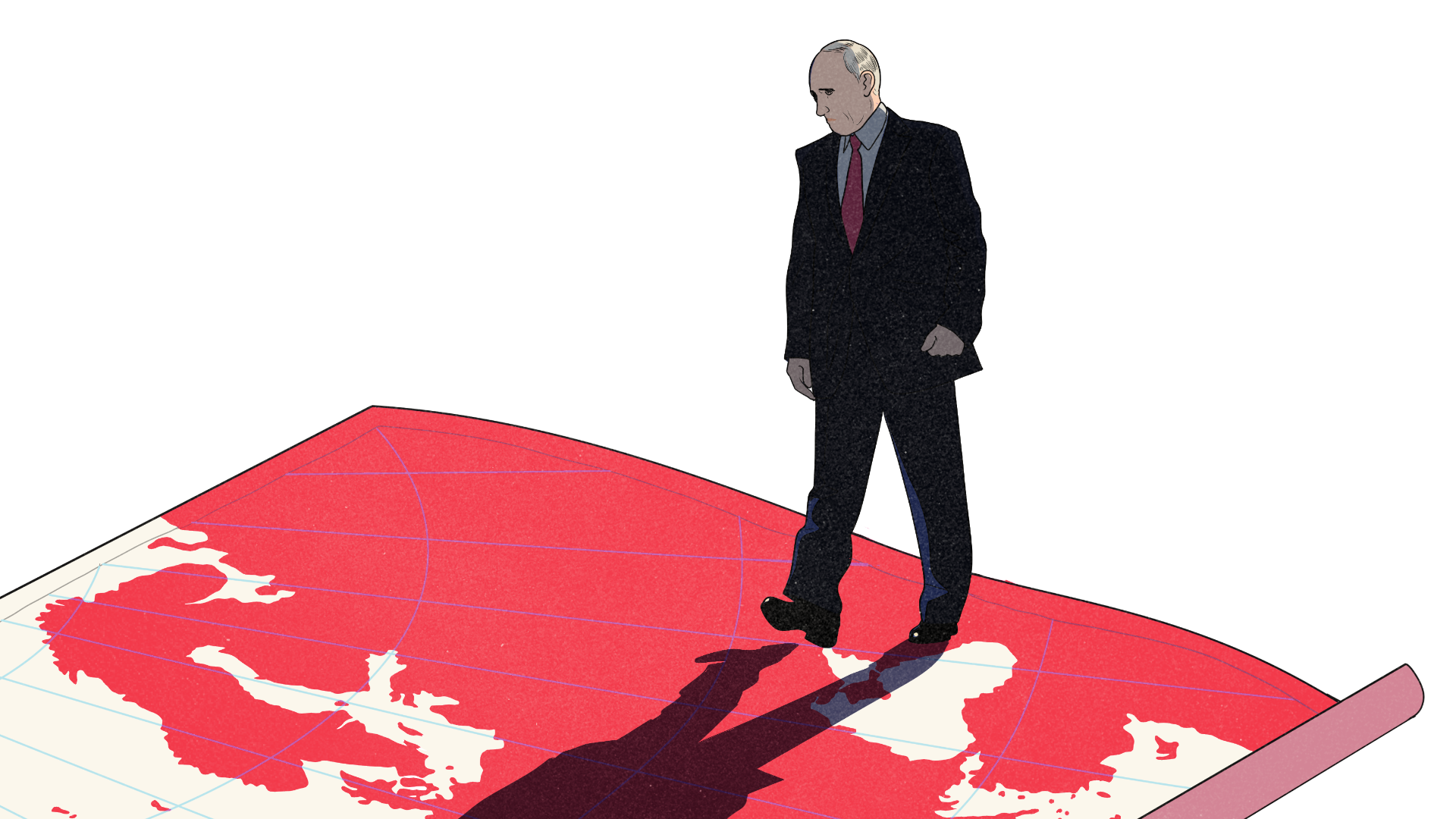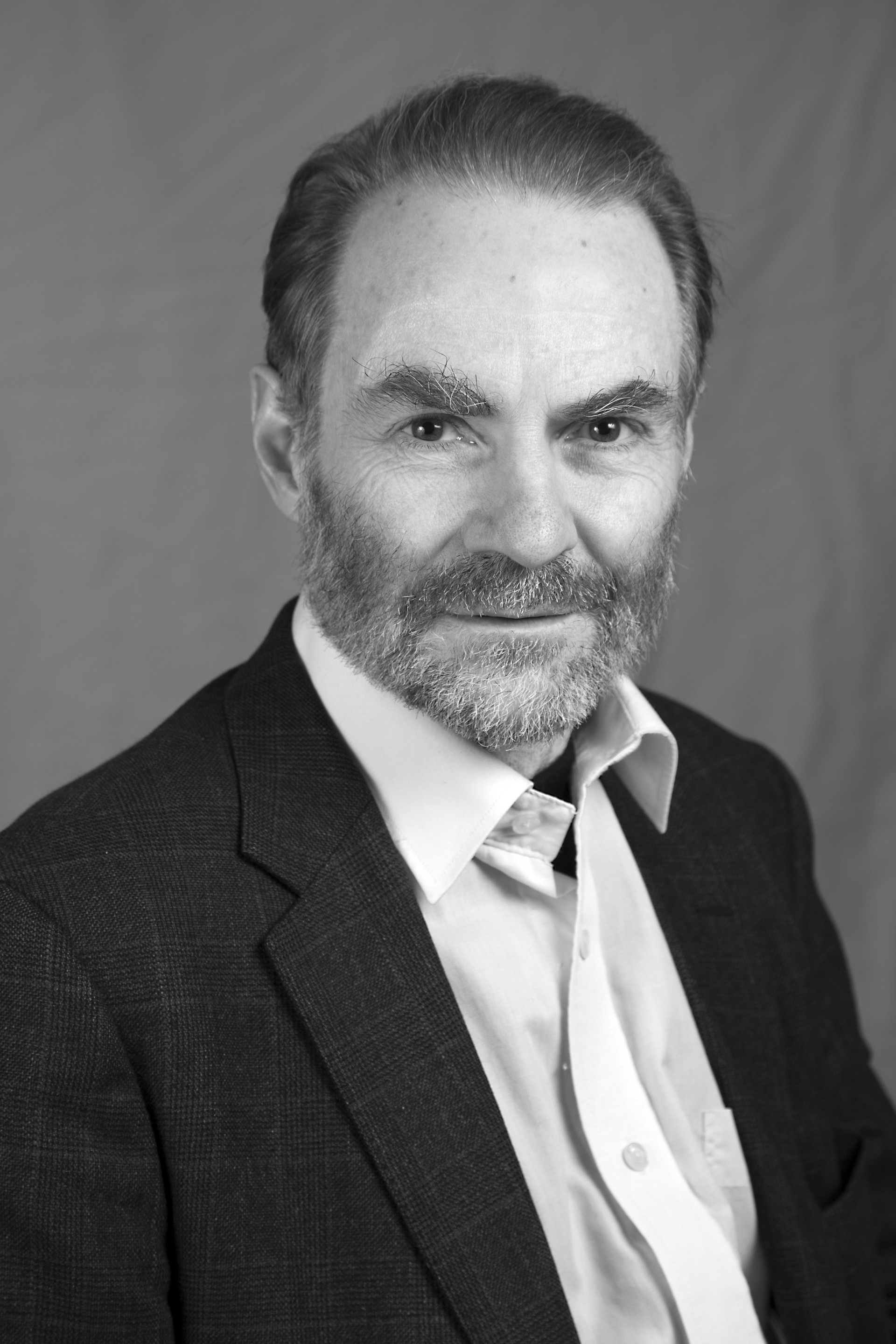WAR IN EUROPE
The West always makes the same mistake
Sarajevo in 1914, the Sudetenland in 1938, Poland in 1945, Crimea in 2014: something happens in seemingly far-flung locations and nobody recognises the implications. And now? Something can still be done. But it won’t be enough for the Ukrainians.
TEXT: TIMOTHY GARTON ASH
ILLUSTRATION: EMMANUEL POLANCO/SEPIA


WAR IN EUROPE
The West always makes the same mistake
Sarajevo in 1914, the Sudetenland in 1938, Poland in 1945, Crimea in 2014: something happens in seemingly far-flung locations and nobody recognises the implications. And now? Something can still be done. But it won’t be enough for the Ukrainians.
TEXT: TIMOTHY GARTON ASH
ILLUSTRATION: EMMANUEL POLANCO/SEPIA
Why do we always make the same mistake? Oh, that’s just something going on in the Balkans, we say – and then a murder in Sarajevo triggers the First World War. Hitler‘s threat to Czechoslovakia is "a quarrel in a faraway country, between people of whom we know nothing" (Neville Chamberlain) – and then came the Second World War. Stalin‘s atrocities in distant Poland after 1945 have nothing to do with us – next thing, it’s the Cold War. Now we’ve done it again, i.e. only woken up when it’s too late, eight years following the annexation of Crimea by Vladimir Putin. And then it’s Thursday, 24 February 2022 – a day that will go down in history. And here we are again, picking up the pieces of our shattered illusions.
Four things matter now
At moments like these, we need courage and decisiveness, but also wisdom. That includes caution regarding use of words. This is not the Third World War. At the same time, it is already a lot more serious than the Soviet invasions of Hungary in 1956 and Czechoslovakia in 1968. The wars in the former Yugoslavia in the nineties were horrific, but the international ramifications were not on the same scale. In 1956, there were brave resistance fighters in Budapest, but Ukraine is an entire, independent state with an army and a people, who both say: resistance is now their destiny. If they don't keep resisting, there will be a bad occupation. If they do, this could be the biggest war in Europe since 1945.
Overwhelming military force is ranged against them; well trained and well equipped conventional forces, plus 6,000 nuclear weapons. Russia is now the world’s largest rogue state. It is led by a President, who – judging by his hysterical tirades – has abandoned all rational thought, something that tends to happen with isolated dictators sooner or later. To be perfectly clear: when he said in his declaration of war that anyone, “who would consider interfering from outside,” would suffer consequences “greater than any you have faced in history” – he was threatening nuclear war.
Russia is now the world’s largest rogue state. It is led by a President, who – judging by his hysterical tirades – has abandoned all rational thought.
If we had really helped Ukraine in 2014 to bolster its defences, if we had reduced Europe’s dependence on Russian energy, if we had drained the lakes of dirty Russian money in Londongrad and had imposed more sanctions on Putin’s regime – then we might be in a better situation now. But that’s all past, we have to start from where we are at this juncture. In the early mist of a dawning war, I see four things that we in Europe and the West must do:
First we must ensure the defence of every centimetre of NATO territory, especially at the borders with Russia, Belarus and Ukraine, against all possible forms of incursion, including cyber and hybrid attacks. For seventy years, the security of the whole of Western Europe has ultimately hung on the credibility of the promise of “one for all and all for one“, laid down in Article 5 of the NATO treaty. Whether we like it or not, London’s long-term security is now inextricably linked with that of Narva in Estonia, Berlin’s with that of Białystok in Poland, Rome’s with that of Cluj-Napoca in Romania.
Secondly, we must support Ukraine in every possible way short of crossing the threshold that would bring the West into open war with Russia. The limited extent of our response to Russia will unavoidably greatly disappoint all the Ukrainians who have decided to stay and fight. In e-mails from Ukrainian friends, for example, they ask for a no-fly zone where Russian planes would be barred from Ukrainian airspace. NATO will not do that. Like the Czechs in 1938, the Polish in 1945 and the Hungarians in 1956, Ukrainians will say: “Dear fellow Europeans, you abandoned and betrayed us.”
However, there are still other things we could do. Not only can the Western democracies that rightly deliver weapons, communication technology etc. continue to do that. Over the medium term, we can help the people using the proven techniques of civil resistance against Russian occupation and every attempt to install a puppet government. We must also be ready to help the many Ukrainians who will flee to the West.
Over the medium term, we can help the people using the proven techniques of civil resistance against Russian occupation and every attempt to install a puppet government.
Over the medium term, we can help the people using the proven techniques of civil resistance against Russian occupation and every attempt to install a puppet government.
Europe should expel Putin‘s friends
Thirdly, the sanctions against Russia should be stepped up. Besides nation-wide economic measures, Russians connected in any way with the regime should be expelled. Putin has prepared for sanctions with a war chest in excess of 600 billion dollars and one hand on Europe’s gas mains. So, it will take time before sanctions really start to bite.
Ultimately, the Russians themselves need to be the ones who say: “Enough. Not in our name.” Many of them, including Nobel Peace Prize winner Dmitry Muratov, have already expressed their abhorrence of this war. Or read the moving report by Ukrainian journalist Natalia Gumanjuk about a Russian journalist crying to her over the phone asking for forgiveness, while the Russian tanks rolled in. The abhorrence will only grow as the corpses of young Russian men return in body bags – and when the consequences for Russia’s economy and reputation become apparent at home. Russians will be the first and last victims of Vladimir Putin.
“The victory of a defeat“
That takes me to a last and vital point. We must be ready for a long struggle. It will take years, probably decades even, to come to terms with the consequences of 24 February 2022. The short-term prospects for Ukraine look dire. But at the same time I am reminded of the wonderful title of a book about the Hungarian revolution of 1956: “The victory of a defeat“. Almost everyone in the West has now understood that Ukraine is a European state being attacked and dismembered by a dictator. Kyiv was recently a city full of journalists from all over the world. This experience will shape their view of Ukraine for ever. During the years following the Cold War, the years when our illusions reigned, we had forgotten how nations become established in the mental map of Europe: with blood, sweat and tears.

Timothy Garton Ash is a British historian, publicist and writer. His columns are published in the Guardian plus numerous other international newspapers. He lives in Oxford and Stanford. This text has already been published in “Süddeutsche Zeitung“.

Timothy Garton Ash is a British historian, publicist and writer. His columns are published in the Guardian plus numerous other international newspapers. He lives in Oxford and Stanford. This text has already been published in “Süddeutsche Zeitung“.
More articles
Josef Joffe // Braving the cold for Kyiv?
All of a sudden, the West remembers Schiller’s observation: “The most pious man can’t stay in peace, if it does not, please his evil neighbour.” There is more than just Ukraine at stake; Europe’s 77-year-old reign of peace, the longest ever, is on the line.
Wolfgang Gerhardt // A danger to the neighbours
Violence is an established component of the Russian box of tricks. But there is no war in which one wins what the other loses. There is just human suffering for everyone.
Sven Hilgers // Financial weapons
The unprecedented package of sanctions imposed by the G7 in response to Russia’s attack shows how the financial system can be used in geopolitical conflicts. In the future, nations will be more careful to avoid asymmetrical dependencies.
